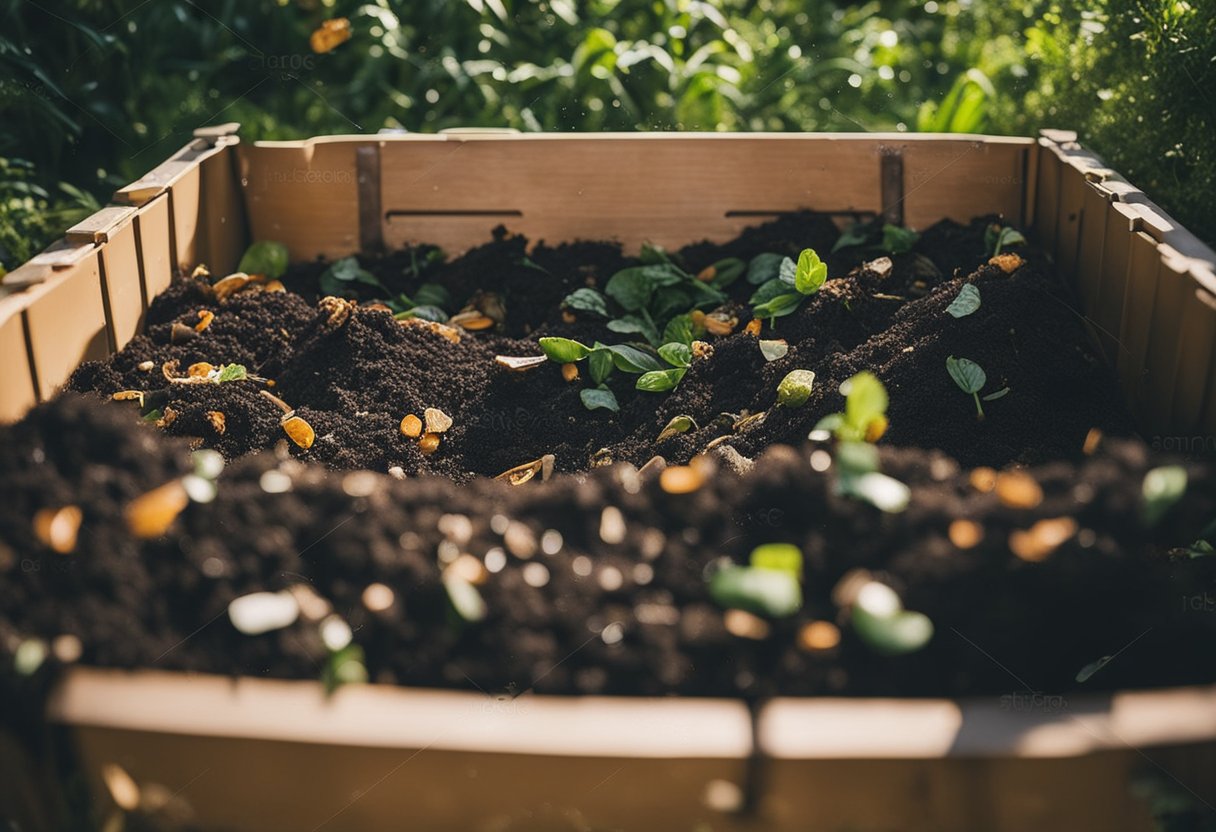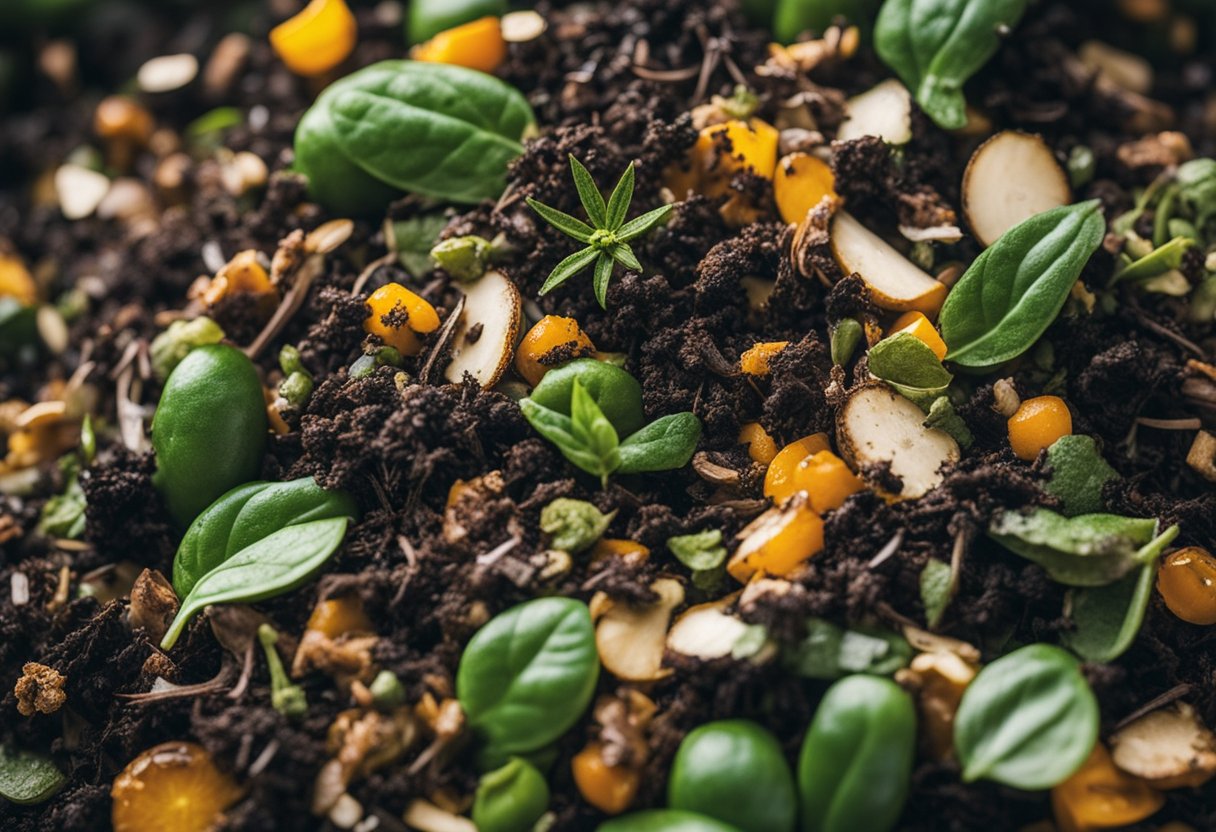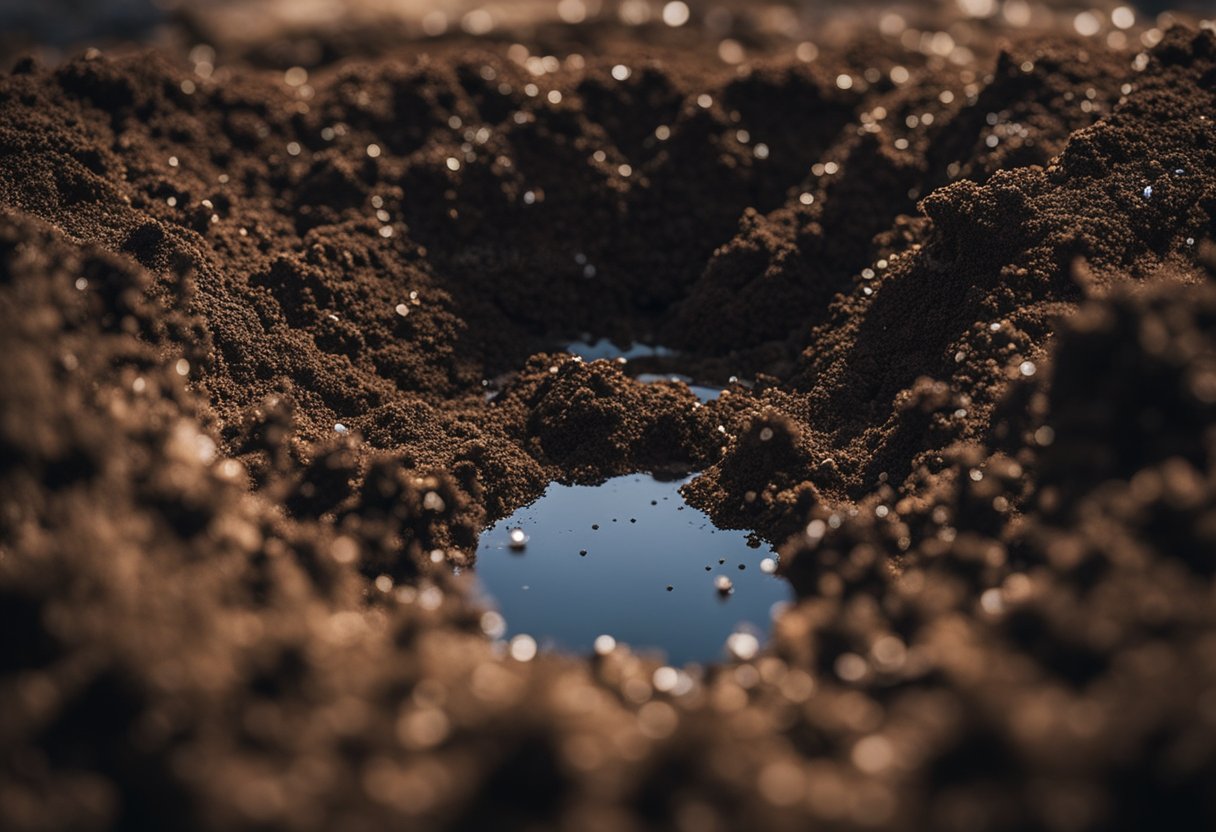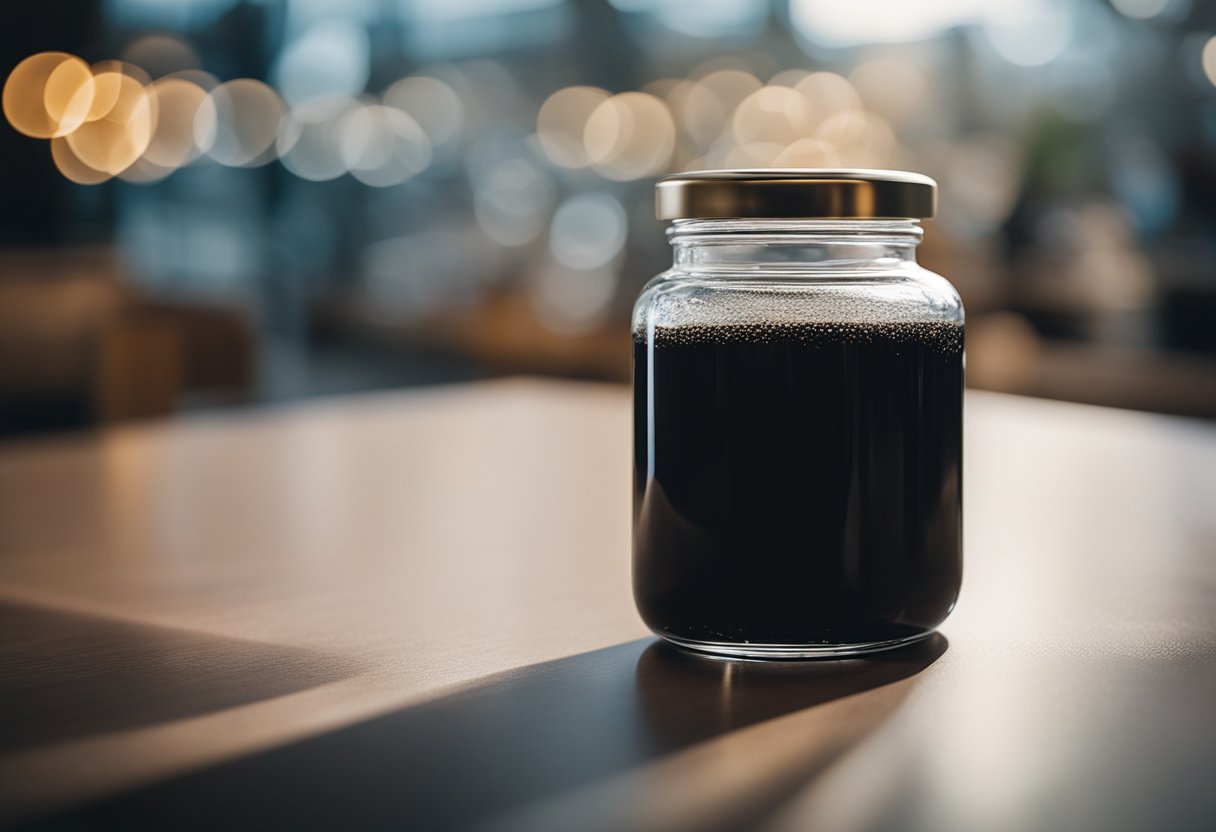As an Amazon Associate I earn from qualifying purchases.
At A Glance
It’s not recommended to compost oil as it can cause several issues in your compost pile. Oils, fats, and greases can create a barrier on the compost materials, preventing the necessary air and moisture from circulating, which is essential for the aerobic decomposition process. Furthermore, oils can attract pests like rodents and create unpleasant odors as they become rancid. They can also interfere with the microbial activity necessary for effective composting. It’s advisable to avoid adding oils and other greasy substances to your compost pile to maintain a healthy and efficient composting process. If you have small amounts of oil on food scraps, it may not cause significant problems, but larger quantities should definitely be avoided.
Composting is an excellent way to reduce waste and create nutrient-rich soil for your garden. However, not all materials are suitable for composting, and many people wonder if oil can be composted. The answer is complicated, but in short, you can compost small amounts of vegetable oil from a normal household.

When it comes to composting oil, it’s essential to understand the different types of oil and their impact on the environment. Synthetic oils, such as motor oil, should never be composted as they can harm the environment. On the other hand, vegetable oils like corn oil, olive oil, sunflower oil, or rapeseed oil are organic and can be composted in small amounts.
While you can compost small amounts of vegetable oil, it’s important to keep in mind that adding too much oil to your compost can lead to unpleasant odors and slow down the decomposition process. In this article, we will explore the dos and don’ts of composting oil and provide you with the information you need to compost vegetable oil safely and effectively.
Understanding Composting
Composting is a natural process that breaks down organic matter into a nutrient-rich soil amendment. The process of composting involves the breakdown of organic matter by microorganisms, such as bacteria and fungi. Composting can be done in a variety of ways, including in a compost bin, compost pile, or compost tumbler.
Aerobic composting is the most common method of composting. It involves creating a pile of organic matter, such as food scraps, yard waste, and other compostable materials, and providing the pile with oxygen. This process requires turning the pile regularly to ensure that it remains aerated and that the microorganisms have access to oxygen.
Hot composting is a type of aerobic composting that involves creating a pile of organic matter that heats up to high temperatures, usually between 120 and 160 degrees Fahrenheit. This high temperature helps to kill pathogens and weed seeds, making the resulting compost safe to use in gardens and farms.
If the compost pile does not receive enough oxygen, it can become anaerobic, which means that the microorganisms in the pile do not have access to oxygen. This can result in a foul-smelling pile that takes longer to decompose and may attract pests.
Adding organic matter to the compost pile is an important part of the composting process. Food scraps, yard waste, and other compostable materials can all be added to the pile. However, it is important to avoid adding materials that are not compostable, such as meat, dairy, and oils, as these can attract pests and slow down the composting process.
Compost tea is a liquid fertilizer that is made by steeping compost in water. This can be a great way to add nutrients to plants and gardens. However, it is important to use compost tea within a few hours of brewing, as it can quickly become anaerobic and lose its nutrients.
Overall, composting is a great way to reduce waste and create nutrient-rich soil for plants and gardens. By understanding the composting process and following best practices, anyone can create a successful compost pile.
Types of Oils and Their Impact on Composting

Vegetable Oils
When it comes to composting, vegetable oils are the best option. Small amounts of vegetable oils, such as olive oil, sunflower oil, rapeseed oil, and corn oil, can be added to compost without any problems. In fact, these oils can help speed up the decomposition process by providing nutrients to the microorganisms that break down the organic matter.
Cooking Oils
Cooking oils, on the other hand, are not as easy to compost. While small amounts of used vegetable oil can be composted, it is important to avoid adding too much oil to the compost pile, as it can clog the pores of the compost and slow down the decomposition process.
Synthetic Oils
Synthetic oils, such as motor oil or hydraulic fluid, should never be added to a compost pile. These oils are not biodegradable and can contaminate the soil, harming plants and animals. It is important to recycle or properly dispose of synthetic oils to prevent environmental damage.
In summary, vegetable oils are the best option for composting, while cooking oils should be used sparingly and synthetic oils should be avoided altogether. By following these guidelines, you can successfully compost oils and help create nutrient-rich soil for your garden.
Potential Problems with Composting Oil

Composting oil can present some challenges, especially if not done correctly. Here are some potential problems you may encounter when composting oil:
Foul Odors
Improperly managed oily residues can emit unpleasant odors during decomposition, which could attract pests like rodents or insects near your compost area. To prevent this, it is important to keep the compost pile well-aerated and to avoid adding too much oil at once.
Reduced Airflow
Too much vegetable oil can clog the pores of the soil, reducing the amount of air and water that can reach the compost. This can slow down the decomposition process and result in a less effective compost.
Attracting Pests
Adding vegetable oil to compost can attract pests like flies, maggots, and other vermin. To avoid this, it is recommended to keep the compost pile in a sealed container or bin and to avoid adding too much oil at once.
Overall, while composting oil can be a great way to reduce waste and create nutrient-rich soil, it is important to be aware of the potential problems that can arise. By following the tips above, you can help ensure that your composting process is successful and effective.
Alternative Uses for Oil

When it comes to used cooking oil, composting is not always the best solution. Fortunately, there are alternative ways to use and dispose of oil that are both environmentally friendly and practical.
One option is to recycle the oil. Many cities have recycling programs that accept used cooking oil. The collected oil is then processed into biodiesel, a renewable fuel source that can power vehicles and machinery. Biodiesel is a cleaner-burning fuel than traditional diesel, emitting fewer pollutants and reducing greenhouse gas emissions.
Another option is to make soap. Used cooking oil can be transformed into soap through a simple process called saponification. The oil is mixed with lye and other ingredients to create a natural, chemical-free soap that is gentle on the skin. Making soap at home is a fun and rewarding way to repurpose used oil while reducing waste.
If neither recycling nor soap-making is an option, consider participating in a grease recycling program. Many cities offer these programs, which collect used cooking oil and grease from households and businesses. The collected grease is then recycled into biodiesel or other useful products.
In conclusion, there are many alternative uses for used cooking oil that can help reduce waste and benefit the environment. Whether it’s recycling, soap-making, or participating in a grease recycling program, there are practical and sustainable solutions for disposing of oil.
Sure, here’s the section you requested:
Best Practices for Composting Oil
When it comes to composting oil, there are a few best practices to keep in mind to ensure that your compost pile stays healthy and free from unpleasant odors. Here are some tips to follow:
Use Plant-Based Oils Only
When composting oil, it’s important to only use plant-based oils that haven’t come in contact with meat. Some examples of plant-based oils that you can compost include canola, coconut, corn, olive, grapeseed, safflower, soy, sunflower, and vegetable oil.
Add Oil in Small Amounts
Adding too much vegetable oil to your compost heap can create air circulation issues, resulting in foul odors. To avoid this, only add small amounts of oil at a time, and mix them well into your compost pile.
Avoid Mixing Oil with Yard Waste
Mixing leftover cooking grease with yard waste is not a good idea for your compost heap. Instead, collect the oil into an old coffee can or a jar, and then drop it off at a local recycling facility. If there’s not a local recycling facility in your area, you can compost small amounts of vegetable oil.
Store Oil in an Airtight Container
To prevent oil from going rancid before you’re ready to compost it, store it in an airtight container in a cool, dry place. This will help to preserve the oil until you’re ready to add it to your compost pile.
Avoid Using Paper Towels or Cheesecloth
While it may be tempting to use paper towels or cheesecloth to absorb excess oil, these materials should not be added to your compost pile. Instead, consider using cardboard or other biodegradable materials to absorb excess oil.
Ensure Proper Drainage
Finally, it’s important to ensure that your compost pile has proper drainage to prevent water from pooling in the bottom. This can lead to anaerobic conditions, which can cause unpleasant odors and slow down the composting process. Consider adding a layer of gravel or other drainage material to the bottom of your compost pile to ensure proper drainage.
By following these best practices, you can successfully compost oil and contribute to a healthier, more sustainable garden.
Benefits of Composting Oil
Composting oil is an eco-friendly practice that offers many benefits. It helps reduce waste and create nutrient-rich fertilizer, which can be used to enhance plant growth. Composting oil can also help retain moisture in the soil and provide essential nutrients to plants.
One of the main benefits of composting oil is that it reduces waste. Instead of throwing away used oil, it can be repurposed as a nutrient-rich fertilizer. This not only helps reduce landfill waste but also provides a sustainable solution for disposing of used oil.
Composting oil can also help create a hot compost pile. Adding oil to the compost pile can help increase the temperature, which can speed up the composting process. This is because oil contains carbon, which is an essential component of compost. The heat generated by the composting process can help kill harmful bacteria and pathogens, resulting in a safe and nutrient-rich fertilizer.
In addition to providing nutrients, composting oil can help retain moisture in the soil. This is because oil helps prevent water from evaporating from the soil. This is especially important in areas with low rainfall, where water conservation is essential.
Composting oil can also help promote the growth of beneficial bacteria in the soil. This is because oil contains carbon, which is an essential nutrient for bacteria. Beneficial bacteria help break down organic matter in the soil, releasing nutrients that plants can use.
Overall, composting oil is an environmentally friendly practice that can help reduce waste and provide essential nutrients to plants. It can also help promote the growth of beneficial bacteria and retain moisture in the soil. By composting oil, we can reduce our environmental impact and promote sustainable plant growth.
Conclusion
In conclusion, composting oil can be a tricky process. While small amounts of vegetable oil can be added to your compost, it is important to follow proper guidelines to prevent issues such as odor, pests, and an imbalance in the composting process.
It is important to note that not all oils can be composted. Only plant-based oils that haven’t come in contact with meat should be added to your compost. Some examples of oils that can be composted include corn oil, olive oil, sunflower oil, or rapeseed oil.
If you are unsure about whether a particular oil can be composted, it is best to err on the side of caution and dispose of it properly. Pouring large amounts of oil into your compost can lead to serious problems, so it is important to use it in moderation.
Overall, composting oil can be a great way to reduce waste and create nutrient-rich soil for your garden. However, it is important to do so responsibly and with care to avoid any negative effects on the environment.
